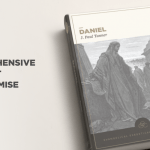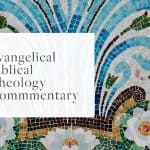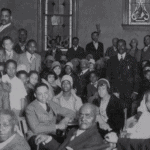
In this excerpt from Theology Is for Preaching, Chase R. Kuhn argues that the most biblical sound form of preaching is deliberately theological.
There appears to be a growing hesitancy towards the discipline of systematic theology amongst some evangelical leaders. There is a concern that theological systems pollute a pure reading of the Bible, so there is no place for theology in the pulpit. Instead it is the exposition of the text in its context that drives the sermon, not how the truth of that text might agree or disagree with other texts. This sentiment wishes to guard the reading and preaching of the word from theological imposition, thus maintaining the integrity of the biblical witness. As well-intentioned as this desire to protect the purity of scriptural reading may be, it is misguided as it fails to recognize the inherently theological character of Scripture and the theological nature of preaching.
Preaching is not exclusively a church activity, but it is central to the church’s life together. The activities of the church are grounded in theological convictions and each activity declares those convictions about the God who has acted to gather the church. The declaration of truth—whether explicitly in word or implicitly in form—is grounded in an a priori commitment to doctrine, and will be a demonstration of that theology in both its message and its mode.
Theology and Preaching
In the past few decades, efforts have been made to retrieve theological interpretation of Scripture. Within this movement, proponents have advocated reviving ruled reading—reading according to the Rule of Faith. This Rule was an early doctrinal formulation, similar to the baptismal confession that became what we now know as the Apostles’ Creed. “Ruled reading” seeks to guard the text of Scripture from the intrusion of error by reading according to the theology recognized from the canon of Scripture. Ruled reading, or theological interpretation, is an exercise in guarding the gospel and in rightly handling the word of truth (2 Tim 2:15).
Theological interpretation is more than defensive, it also helps provide thicker reading. Robust orthodoxy gives space to deeper and more wonderful nuance to be observed in the text. The more sophisticated our Christology is, the better we will recognize Christological themes and developments in a passage. This has a constructive effect, as these observations in the text contribute to a fuller and well-formed biblical Christology. Furthermore, this thicker reading is appropriately canonical, giving attention to the specific contribution of a passage—diachronically and synchronically—to the truth the Bible presents as a unit.
Of course, the most public demonstration of theological reading is the proclamation of the word. Preaching is central to the church gathering, as hearing the word is what edifies the church (Eph 4:11–16). Theology plays a crucial role in preaching, as preaching is the predominant teaching post within the fellowship. Theology does not hijack the sermon, but the sermon must be theologically informed. In other words, just as our reading must be guarded by doctrine, so must the sermon. “Of course, proclamation does not have the same relation to the truth of Christian doctrine as systematic theology,” wrote Pannenberg. “Claiming that the content of Christian doctrine is true in detail, proclamation implicitly presupposes its inner coherence and its coherence with all that is true. In systematic theology, however, this coherence itself is the object of the investigation and presentation of the doctrinal content.”48 The sermon need not be a presentation of a systematic theology (in fact, in most cases it should not be such a presentation), but the sermon must have systematic sensibilities. The preacher has a responsibility to teach truth, and the text for exposition must not be taught in a way that so expounds “one place of Scripture, that it be repugnant to another.”
“Rightly handling the word of truth.”
In his departing words, the Apostle Paul gave direct charges to Timothy. “Follow the pattern of the sound words that you have heard from me, in the faith and love that are in Christ Jesus. By the Holy Spirit who dwells within us, guard the good deposit entrusted to you” (2 Tim 1:13–14). Paul’s first concern is that Timothy recognize a pattern of “sound words,” (hugiainontōn logōn). Theology must be identified; that which is reliable teaching must be known against what is false teaching, so that we might read and minister in the church effectively. As this pattern of sound doctrine is known and followed, there is a protection of this truth. This is not mere recitation of scriptural verses, but systematic identification of the truths that come from true reading of the Scriptures.
Further to these charges, Paul exhorted Timothy to entrust what he has heard to others (2 Tim 2:2). The primary means of entrusting these theological truths to people is the proclamation of the word, which Paul exhorts Timothy to rightly handle (2 Tim 2:15). Paul warns Timothy that there will be a time when people will not want to listen to sound doctrine (hugiainousēs didaskalias), and in view of this Timothy must preach the word (2 Tim 4:1–4). Again, we notice that Paul associates sound doctrine with the proclamation of the word.
We can summarize Paul’s teaching to Timothy as a summary of our study on the close connection of theology and preaching. A body of healthy or sound teaching must be identified to guard against error and to serve as the anchor point for faithful biblical preaching. The result of rightly handling the word in proclamation will be the entrusting of the faith to other reliable people who can propagate the truth. Because there is such temptation to stray from the truth, the word must be preached. Furthermore, because the hearers of the word are all traditioned people, the proclamation of the word offers a test to these traditions. We recognize that for Paul preaching is a theological exercise; it demands sound theology, and it entrusts good theology to others.
This post was adapted from Theology Is for Preaching: Biblical Foundations, Method, & Practice (Lexham Press, 2021).







